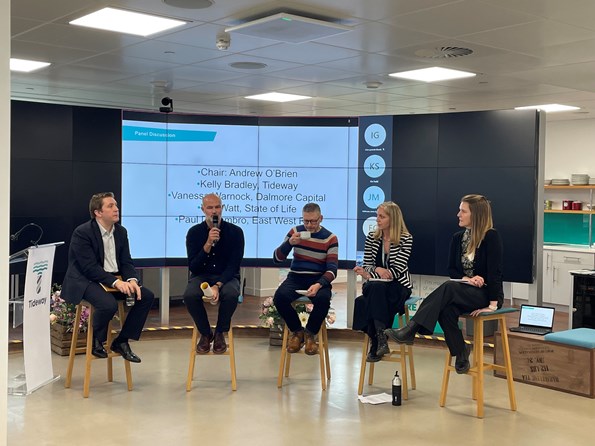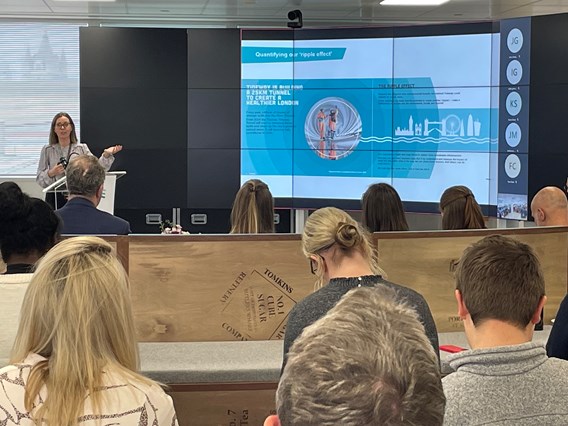Tideway hosts forum to share assessment of project's 'social value'
Tideway, the company building London’s super sewer, has shared its experience in creating ‘social value’ in an industry-wide event marking the publication of the project’s Social Impact report.
At the Major Projects Social Value Forum, hosted by Tideway, attendees heard about the key findings from the report detailing the impact of Tideway’s legacy programme – as well as the challenges for (and the future shape of) social value assessment for major projects.
The new report analysed key legacy programme activities that were most suited for social value measurement, including taking lorries off the road by transporting spoil and materials by river; giving jobs to the workless and people with convictions; and staff volunteering.
The theme of the report is the 'ripple effect', reflecting both the benefits of the Tideway legacy programme for London and beyond but also what the company is leaving for industry in sharing its learnings on social value measurement.
Tideway’s CEO Andy Mitchell opened the forum, giving an honest assessment of Tideway’s approach: “We wanted to create ambitious plans beyond what we were simply required to do – to shoot for the stars – and in this report we acknowledge that we didn’t get everything right and could have been more analytical earlier on in the project.
“But we got some things right and set a culture that tried to embed social value in what we do. This report highlights those good things as well as giving pointers on assessing social value for other projects who follow us.”
Speakers at the forum included:
• Samantha Freelove, Legacy & Sustainability Manager (Tideway)
• Andrew O’Brien, External Affairs Director (Social Enterprise UK)
• Will Watt (State of Life, which produced the Tideway report)
• Vanessa Warnock, ESG Director (Dalmore Capital, a Tideway shareholder)

Samantha explained how Tideway aimed for an assessment which reflected additional social value, over and above legal requirements and outside the core benefit of a cleaner river, adding: “We haven’t chased the big numbers. We are proud of the report, as much for what we have learned as much as what we have achieved.”
Andrew said: “There is growing momentum in the area of social value assessment and its influence has grown from a few billion pounds a year to nearly £100 billion a year over the past decade.
“The challenge is how we can systemise social value in public and private organisations to take it to the next level and it’s great that Tideway has invested so much time and effort in developing this report to share more data, evidence and knowledge.”

Will added: “Things have moved on from companies looking to quote big numbers on social value delivered, tick a box and move on. The Government’s updated ‘Green Book’, which the Tideway social value assessment was based on, looks at social value as the benefits to people’s wellbeing through investment and is available for all companies to use.
“But it looks at additional ‘non-market’ value, so it does not produce the biggest numbers. There are other methods out there and Tideway was really brave in doing it this way.”
Vanessa said: “Not all social value is delivered from public money. Much of it is privately funded and that money often comes from pension funds and those pensioners want to know what their money is being invested in, so reports like this are really important.”
You can read Tideway’s Social Impact report here.
